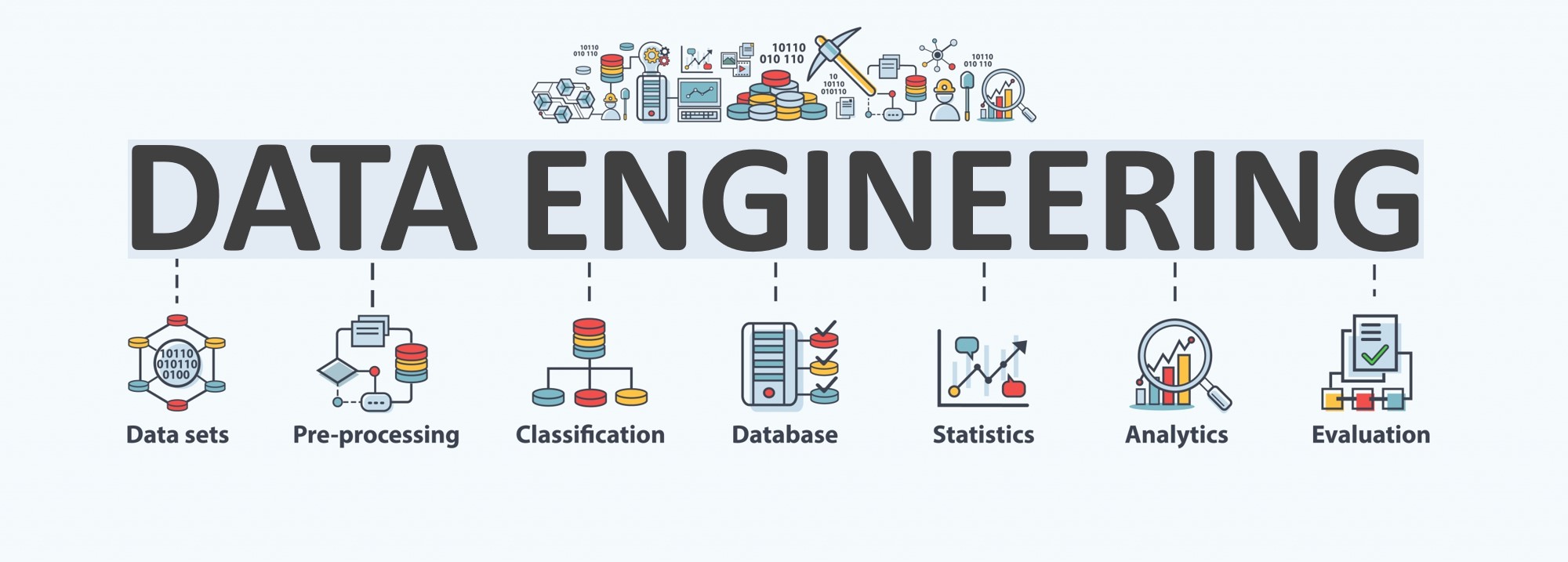What skills do you need to become a software engineer?
Published

Software engineers need to be able to do more than just program. To be a successful software engineer, you need to have the right combination of hard and soft skills, in addition to the more specialized skills required for your software engineering subset. In this article, we'll look at the basics of software engineering, the skills a successful software engineer must have, the different types of software engineering jobs and how you can expand your skill set.
What does a software engineer do?
A software engineer uses their knowledge of system architecture, programming languages and user requirements to create software programs and applications. It's a collaborative role that involves writing code, reviewing code, and working with product developers and project managers to understand what features are needed for a project. Learn more about the many career paths to becoming a software engineer in this blog post.
What software engineering skills are required to be successful?
Like any other profession, being a software engineer requires a mix of hard and soft skills. We've broken things down so you know how to be successful.

Source: vdi-nachrichten.com
Software-Ingenieur Hard Skills
Hard Skills sind die technischen Fähigkeiten, die durch Ausbildung oder berufliche Weiterbildung erworben wurden. Es handelt sich dabei um Fähigkeiten, deren Beherrschung und Kompetenz objektiv gemessen werden kann. Software-Ingenieure müssen vertraut sein mit:
- Programming languages
- Data structures and algorithms
- Testing and troubleshooting
- Containern
Let's take a closer look at what these skills mean.
1. skills in programming languages
Knowledge of programming languages is the foundation of software engineering. Programming languages allow you to create instructions for a computer to execute. Software engineers do not need to know every language, but they should know at least one. The four most common software development languages are Javascript, HTML/CSS, Python and SQL.
JavaScript
JavaScript is one of the most important scripting languages for website development. It controls the behavior and functionality of a website and enables visitors to interact with the content of the website. As JavaScript is primarily a client-side language, it is executed in the user's browser. However, with the introduction of Node.js, JavaScript can also execute code on servers.
HTML/CSS
Technically speaking, HTML/CSS is not a programming language. It is a markup language that is used to display the user interface for web users. A markup language is human-readable and uses tags to distinguish the elements of a document. Once these tags are included in a document, they are interpreted by the computer and the content is displayed according to the instructions of the tags.
Python
Python is a general-purpose programming language popular with data scientists and is often used as a backend server language. It is known for being simple and readable, and includes tools for processing large amounts of data and extensive code. Something worth noting about Python: it has more than 135,000 libraries to simplify operations.
SQL
Python is a general-purpose programming language popular with data scientists and is often used as a backend server language. It is known for being simple and readable, and includes tools for processing large amounts of data and extensive code. Something worth noting about Python: it has more than 135,000 libraries to simplify operations.

Source: it-daily.net
2. knowledge of data structures and algorithms
Mastering data structures and algorithms is a high priority for a software engineer. They are the prerequisite for efficiently optimized code. To round off these skills, you need to have a good understanding of mathematics, computer architecture and dynamic programming.
3. testing and debugging capabilities
Testing and debugging skills are required to ensure that the code runs properly. Testing code uncovers errors. Debugging fixes them. Testing can be automated, but debugging cannot.
4. container capabilities
Containers bundle the software that engineers develop into virtual packages that can work with a range of different operating systems. Mastering Docker or Kubernetes is an increasingly sought-after skill in the world of software development.
Want to improve these skills? A good way to train your skills as a software engineer is to solve creative programming tasks.
The best soft skills for software engineers
While technical skills are essential, software engineers must also have the necessary soft skills. Here are the most important soft skills that software engineers need:
- Collaboration and communication
- Multitasking
- Continuous learning
- Attention to detail
- Problem-solving ability
- Agile project management
Collaboration and communication
Software engineers need to collaborate and communicate with their team to complete projects. It's not always easy to work in a team, but listening to different opinions provides new perspectives and ultimately helps the team solve problems.
Multitasking
As a software engineer, you have to manage multiple projects with competing deadlines. For this reason, multitasking is a non-negotiable soft skill for software engineers. Successful software engineers know that prioritization and time management are crucial.

Source: greator.com
Continuous learning
Software engineers must be willing to keep learning. Whether it's a new language or new software, great engineers are willing to learn forever. Continuous learning isn't just about lectures and studying. It often comes from talking to others in your field and studying their work.
Attention to detail
Software engineering requires precise and conscientious work. This applies to all areas, from testing and debugging to coding and documentation. Attention to detail also minimizes the error rate. Remember that computers can only understand you if you tell them exactly what to do.
Problem solution
Problem-solving skills are important in every step of software development. There will always be problems, bugs, deadlines, misunderstandings and faulty code. The ability to tackle problems and develop solutions to them is an essential skill.
Agile project management
Software engineers are usually managed by a product or project manager, but they also need to know the operational framework of a sprint plan. Typically, a software engineer's work is assigned via a sprint plan with deadlines. Understanding how to work within a project management system such as Agile is a key skill for a software engineer.
Do you think you have what it takes to be a software engineer? Check out the Springboard Software Engineering Career Track to see if you qualify.
Types of software engineers: different programming skills for different roles

Source: industrie.de
Different types of software development jobs require different skills. The seven common career paths for software engineers include: Front-end engineer, back-end engineer, full-stack engineer, DevOps engineer, QA engineer, security engineer and data engineer.
Front-end engineering skills
Front-end engineers create websites and applications that are user-friendly and appealing. To do this, they must have:
- Technical skills, e.g. knowledge of programming languages (Python, Java, C++, R) and front-end development tools (jQuery, Sublime Text, GitHub)
- Problem-solving and analytical skills
- Communication and collaboration skills
Back-end engineering skills
Backend engineers build the structure for software. They spend their time writing server scripts, business logic and APIs. To be a back-end software engineer, you must have:
- Fluency in programming languages
- Server-side experience with SASS and Less
- Understanding server compliance
- Knowledge of database systems and operating systems
Full-stack engineering capabilities
A full-stack engineer has both front-end and back-end skills. To do this, they must have the following skills:
- Strong interpersonal skills
- Knowledge of the entire software development process
- Project management skills
- Knowledge of the basics of design
DevOps engineering skills
DevOps engineers don't usually work directly with code, but they must have a general knowledge of languages and automation scripting. Recruiters also want DevOps engineers to have the following:
- Strong interpersonal skills
- Time management
- Problem-solving skills
- Knowledge of the relevant tools
QA engineering skills
As engineers responsible for testing software, QA engineers must have the following skills:
- Communication skills
- Problem-solving skills
- Curiosity to dive into the folds of the software and evaluate different functions
- Analytical skills
- Basic programming skills to create scripts for automated tests
Safety skills
Security engineers develop and maintain security systems for companies. In this role, the engineer performs security testing, responds to security incidents and researches new attack vectors. The following skills are required:
- Experience in detecting and responding to cyber attacks
- Experience with digital forensics
- Construction and maintenance of firewalls
- Knowledge of programming languages such as C++, Ruby, Python and Java
- Knowledge of hacking techniques
Data engineering skills

Source: napaanalytics.com
The title "Data Engineer" encompasses a variety of sub-specializations, including data analysis, AI and machine learning. The main task of a data engineer is to analyze large amounts of data. To do this, they must be familiar with the following topics:
- Database systems such as SQL and NoSQL
- Data warehousing solutions
- ETL tools
- Machine learning
- Data APIs
- Programming languages Python, Java and Scala
- Distributed systems
- Algorithms and data structures
How you can expand your software engineering skills
There is no right or wrong way to build your software development skills. However, some of the most effective learning methods are bootcamps, online courses and self-study.
Bootcamps
Coding bootcamps are intensive learning opportunities that teach you the skills you need to be a successful software developer. They are usually offered in full-time or part-time courses to accommodate different time commitments. Bootcamps focus on the most important aspects of programming while teaching you the skills you need to get the job done. This is a good option for those looking for a structured approach to learning. Springboard's Software Engineering Career Track bootcamp teaches you all the skills you need for a career as a software engineer.
Online courses
Online courses are particularly useful if you want to improve your skills in a specific area. Focused courses are less time-consuming than bootcamps as they usually concentrate on a specific topic. This is a good option if you are looking for a crash course or want to try out a different area of programming. Springboard offers a great preparatory course for software engineering. It covers the basics of web development, such as using HTML and CSS to add content, design web pages and manipulate them with JavaScript.
Self-taught
There are a growing number of software engineers who teach themselves everything. It's a daunting prospect, but with discipline, perseverance and practice, it is possible to teach yourself. Take advantage of online resources and forums. If you want to put what you've learned into practice, check out the training courses on Codewars, where you can solve and create programming challenges while tapping into the collective knowledge of the Codewars community.








